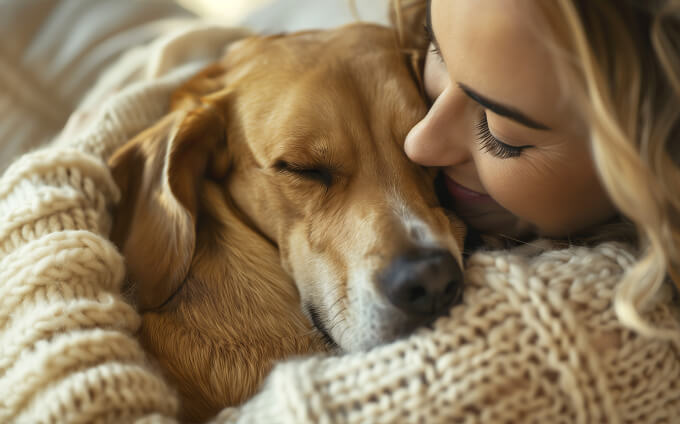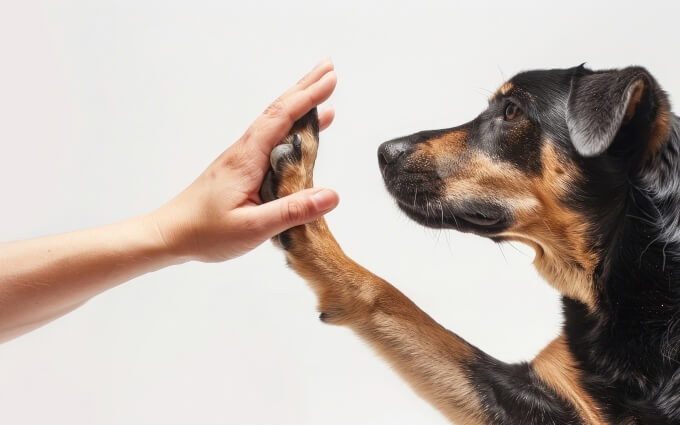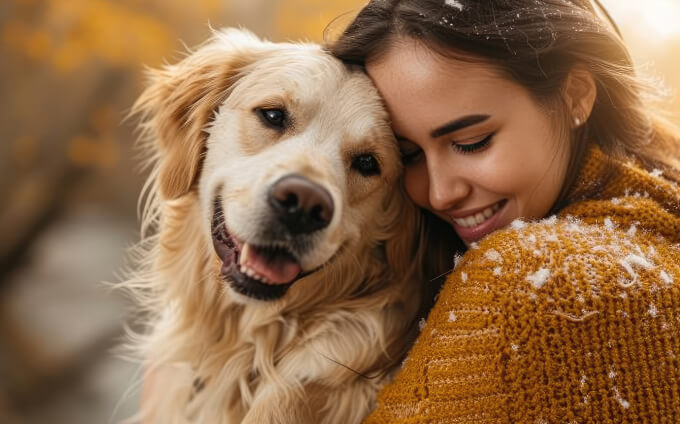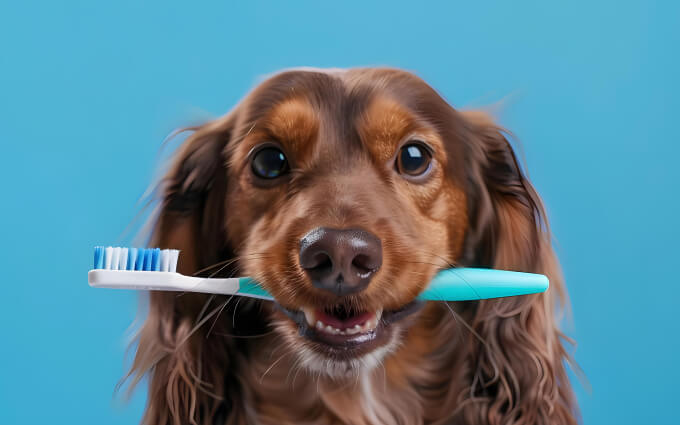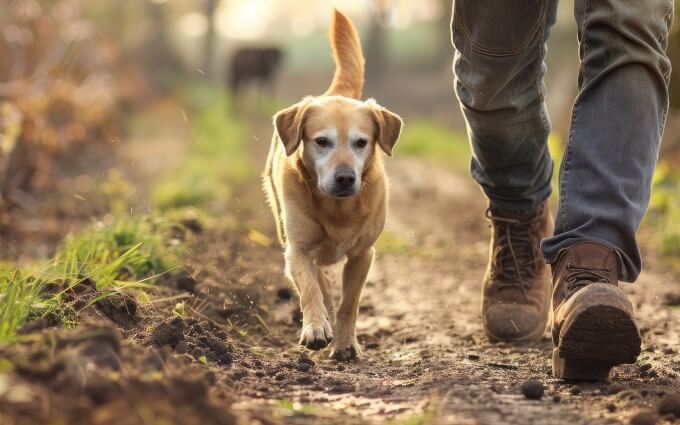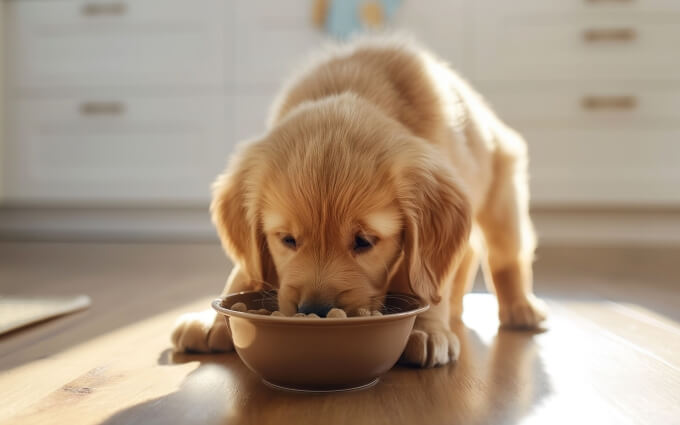- Home
- Puppies & Young dogs
- Puppy's First Vet Visit - What to Expect
Puppy's First Vet Visit - What to Expect
Prepare for your puppy's first vet visit with essential tips and insights. From understanding the examination process to key questions you should ask, ensure your puppy gets the best start in their health journey.

- 21
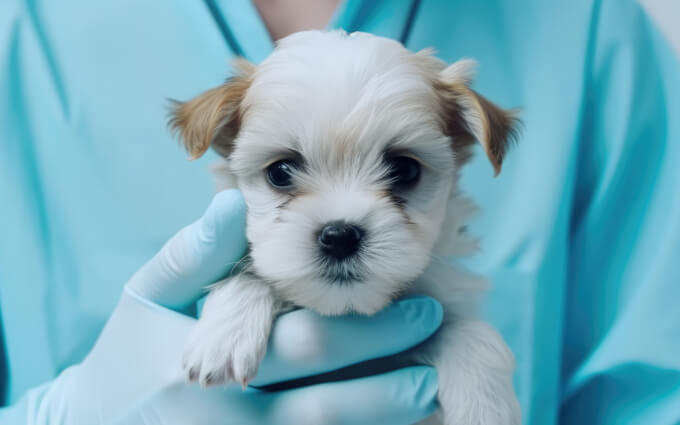
What to Expect During the First Vet Visit
Taking your puppy to the vet for the first time is a crucial step in ensuring their health and well-being. During this initial visit, your vet will perform a comprehensive physical exam to assess your puppy's overall health.
Physical Examination
- Weigh your puppy to monitor growth.
- Listen to heart and lungs for any abnormalities.
- Take your puppy's temperature (rectally).
- Examine eyes, ears, nose, feet, and genitalia.
- Inspect skin and coat for any signs of issues.
- Check teeth and mouth for dental health.
- Palpate abdomen and lymph nodes to detect any unusual signs.
The vet may also ask for a stool sample to check for the presence of worms or other parasites, a common issue in young puppies.
Preparing for the Visit
Being well-prepared can make your puppy's first vet visit smooth and stress-free. Here's what you should bring:
- Any medical records from the breeder or shelter.
- A list of questions or concerns you might have.
- Notes on your puppy's diet and feeding schedule.
- A leash and collar or harness for control.
- A dog carrier or crate, especially if your puppy is small.
- Small treats for rewarding good behavior.
- A chew toy to keep them occupied.
Key Questions to Ask the Vet
Your vet will provide a wealth of information during this visit. To ensure you cover all bases, here are some important questions to ask:
Health and Safety
- How often should my puppy visit the vet?
- When should I spay or neuter my puppy?
- Should I microchip my puppy?
- What vaccinations and parasite prevention are necessary?
- Are there any breed-specific health concerns?
Training and Behavior
- How do I start potty training my puppy?
- Is crate training recommended?
- When can my puppy go to public places like parks or groomers?
- How do I properly socialize my puppy with other dogs and people?
Nutrition
- What kind of food should my puppy eat?
- How often should I feed my puppy?
- When should I switch my puppy to adult dog food?
- Are there any foods I should avoid giving my puppy?
After the Visit: Follow-Up and Care
Post-visit care is essential to keep your puppy healthy and happy. Your vet might prescribe medications or schedule follow-up visits for vaccinations and further health checks. Ensure you understand and follow all care instructions provided by your vet.
Scheduling Follow-Ups
Puppies typically need several vet visits for vaccinations and routine check-ups during their first few months. Schedule these in advance to stay on track with your puppy's health plan.
Home Care Tips
- Maintain a regular feeding schedule and monitor your puppy's diet.
- Keep your puppy's living area clean and safe.
- Provide plenty of mental and physical stimulation through play and training.
- Watch for any signs of illness and contact your vet if you notice anything unusual.
Frequently Asked Questions about a Puppy's First Vet Visit
When should I take my puppy to the vet for the first time?
Puppies should usually see a vet within the first week of coming home, often around 6–8 weeks of age.
What happens at a puppy's first vet visit?
The vet will check your puppy's overall health, give vaccinations, and discuss deworming and flea prevention.
Do puppies get vaccines at their first vet visit?
Yes, most puppies receive their initial vaccines at the first visit, depending on age and health.
Should I bring anything to my puppy's first vet appointment?
Bring any health records, a fresh stool sample, and a list of questions for the vet.
How can I prepare my puppy for the vet visit?
Keep the experience positive by using treats, gentle handling, and short car rides to reduce stress.
- 21
 Michelle Torring
Michelle Torring
Michelle is a passionate dog owner who spends most of her free time with her 6-year-old golden retriever, Bella. The two are a familiar sight in the neighborhood, often seen on long walks in the park or at the beach. Michelle loves training Bella in agility and they often compete in local competitions where Bella impresses with her speed and agility. Every Sunday, Michelle organizes playdates for dogs in the neighborhood where both dogs and owners can socialize and learn from each other. To Michelle, Bella is not just a dog, but a beloved family member and faithful companion.
-
Food & Nutrition
 The Best Foods to Boost Your Dog's Immune System
The Best Foods to Boost Your Dog's Immune SystemTo keep your dog healthy and resilient, fueling their immune system with the right foods is key. In this post, we'll cover the top nutrient-packed foods that can give your dog's immune system the support it needs, helping them fend off illness and stay energetic.
 Marcin SolgaardOct 04, 20249
Marcin SolgaardOct 04, 20249 -
Dog Behavior
 Does My Dog Know I Care About It?
Does My Dog Know I Care About It?Discover the ways your dog shows it knows you care and how you can reinforce that loving bond through simple actions and daily interactions.
 Cassandra DalgaardAug 05, 202444
Cassandra DalgaardAug 05, 202444 -
Puppies & Young dogs
 How to Puppy-Proof Your Home: A Complete Guide
How to Puppy-Proof Your Home: A Complete GuideBringing a new puppy home is thrilling, but keeping them safe means some serious puppy-proofing. This guide covers everything from securing hazardous items to creating a puppy-friendly zone, making your home a safe haven for your curious new companion.
 Michelle TorringOct 10, 202412
Michelle TorringOct 10, 202412 -
Tips & Tricks
 How to Train Your Dog to Give Paw
How to Train Your Dog to Give PawTeaching your dog to give paw is a fun and rewarding experience that strengthens your bond. This guide walks you through the process with tips, tricks, and plenty of paw-sitive reinforcement.
 Marcin SolgaardApr 11, 202441
Marcin SolgaardApr 11, 202441 -
Dog health
 Which Emotions Do Dogs Actually Experience? Understanding Your Dog's Emotions
Which Emotions Do Dogs Actually Experience? Understanding Your Dog's EmotionsDogs experience a variety of basic emotions similar to those of a young child. Learn about the emotions your dog truly feels, how they express them, and what it means for your relationship.
 Cassandra DalgaardJul 30, 202478
Cassandra DalgaardJul 30, 202478 -
Dog health
 Essential Tips for Caring for Your Dog's Teeth and Gums
Essential Tips for Caring for Your Dog's Teeth and GumsMaintaining your dog's dental health is crucial for their overall well-being. This guide covers various methods to care for your dog's teeth and gums, ensuring they stay healthy and happy.
 Cassandra DalgaardAug 19, 202436
Cassandra DalgaardAug 19, 202436 -
Puppies & Young dogs
 New Puppy? Here's What You Need to Buy
New Puppy? Here's What You Need to BuyPreparing for a new puppy involves gathering essential supplies to ensure they have a comfortable and happy start in their new home. Here's your ultimate shopping list!
 Marcin SolgaardMay 06, 202448
Marcin SolgaardMay 06, 202448 -
Tips & Tricks
 How to Train Your Dog to Walk Off-Leash
How to Train Your Dog to Walk Off-LeashThis guide will walk you through everything you need to know, from essential commands to mastering off-leash walks even in distracting environments
 Marcin SolgaardJul 02, 202451
Marcin SolgaardJul 02, 202451 -
Food & Nutrition
 How to Choose the Right Diet for Your Allergic Dog
How to Choose the Right Diet for Your Allergic DogFind out how to select the perfect diet for your dog with allergies. Learn about elimination diets, hypoallergenic foods, and the best ingredients to keep your furry friend healthy and happy.
 Marcin SolgaardJun 09, 202427
Marcin SolgaardJun 09, 202427 -
Tips & Tricks
 How to Teach Your Dog to Come When Called
How to Teach Your Dog to Come When CalledThis guide walks you through the process, from selecting the right command to dealing with distractions, ensuring a strong recall every time.
 Marcin SolgaardJul 10, 202448
Marcin SolgaardJul 10, 202448


